Q. What are some of the topics that Strength in Numbers will cover?
Curriculum: How to build a business
Q. Is there funding to support travel for the in-person hubs?
There is funding available to support travel to the hubs in Tāmaki Makaurau/Auckland.
Accommodation will also be provided for those travelling from outside regions.
Q. Can more than one person from your business attend?
(We have 3x producers in our screen business and think this would be a fabulous opportunity for us all to be involved in.)
In fairness to all applicants we encourage the business to send in an application for one person. That person can then take the message home and work offline with their partners to develop the answers to the questions that are posed in the workshops.
** Please see the question below for more information
Q. What if your business is a partnership with 2 equal directors? (For a director to make strategic decisions in the moment would be against the value system of a business with 2 equal directors.)
You won’t be making decisions in the moment. We’re really framing questions and helping you work towards your own solutions. You will take these questions back to consult with people; stakeholders not just partners, but maybe life partners or, sometimes even employees or an investor if you have one, you know, there’ll be lots of people who need to be brought into the discussion.
**Additional information that was not part of the webinar:
Applications for businesses with multiple partners to attend will be considered on a case-by-case basis. With limited places available, we would like to benefit as many businesses as possible.
Q. What are you are looking for in an applicant?
Q. A lot of film and TV business seem to get off the ground from either a commercial or critical success – for producers with funded projects and future ambitions but without a current regular cashflow is the course appropriate?
If you’ve had success with your business – this is a great stage to be in as it creates momentum to pick up more projects.
The course is appropriate if you are ready to engage with the business questions, they matter to you enough and you see them as a serious set of questions to engage with.
You have the ambition to build something.
Q. Will there be any focus on obtaining funding for films, getting sponsorship for films and/or marketing films?
No. Strength in Numbers is about the business that sits beneath the projects.
We are interested in the choices you’re making about what to make and how you’re making choices. Fundamentally, we’re interested in the day-to-day platform, the place where you conduct the making of the films.
Q. In the overview it says “Ideal applicants will have a screen industry business (at least three years old) with a slate of projects” Is it possible for people who have had experience running previous screen businesses to apply with a new venture in mind, something that is just forming / brand new?
There is a little bit of ambiguity in that three year specification. We are looking for people with some experience in business, this can’t be your first (brand new) business venture. We’re looking for people who’ve got at least some experience under their belt.
If your purpose is to come here and think about a new business altogether, then that’s absolutely in frame.
Q. Will you be going over things like chain of title and contracts?
The focus of Strength in Numbers is on the underlying business, not on the projects. Chain of title, production contracts and similar contracts will not be covered. Contracts relating to the underlying business may be addressed during the programme, depending on the needs of the group as a whole.
Q. Is there a possibility that you would suggest someone apply for Rainmakers or Strength in Numbers based on their application if they applied for one and weren’t suitable but was suitable for the other?
Apply for both. Please be mindful both programmes have the same deadline. The applications will be going through separate selection processes with different selectors.
Q. As someone who is interested in both Strength In Numbers and Rainmakers Aotearoa is it possible to be chosen for both programmes?
It is it is possible to be chosen for both. If we genuinely think there’s a compelling reason being accepted for both programmes would be considered.
Q. Can you give some examples of who mentors might be?
Lined up for the podcast we currently have Rainmakers such as Helen Bowden (Producer), Chloe Rickard (Jungle Entertainment), Sue Maslin (Producer).
We’re aiming big! Looking for Rainmakers as far up the tree we can get.
Q. Reading the brief it sounds pretty open ended.
Yes. Deliberately so. We’re not wanting to be too determinative about who is an appropriate mentee; this goes for your goals and ambitions and what you would want from your mentorship as well. I think anyone who kind of finds themselves needing answers to questions. We don’t really mind where you come from. It’s about your needs. And you know, whether you fit this and whether we can answer questions for you.
The same with the mentors: we’re interested in the people who are highly productive, highly successful practitioners as mentors. They can be in any role whatsoever. They might be an entertainment lawyer. They might be working at a funding agency, they might be a casting agent. Anyone who is contributing to the productivity of the industry is from our perspective, eligible to be a mentor, and the same in terms of mentees and same in terms of you as applicants.
Q. What does a co-designed approach look like?
Each mentoring program will be co-designed between us and you, and you (the mentee) and the mentor, depending on your needs and goals. The outcomes and milestone of the mentorship will not be specified in advance by us, we will negotiate these between all parties prior to commencement.
Q. Is the mentee able to choose their mentor?
You may suggest someone you think would be the right mentor, whether that person is available or interested is another question. We may take your suggestion into account when choosing your mentor.
Mentors are given the option of accepting or not accepting a proposed mentee. We can’t guarantee that even if a person were one of the one of the mentors, that they would be available to you.
You need to be open to the possibility that we might have a different idea of who would be the right mentor for you and obviously would discuss that with you too.
Q. What do you most want to hear in the one paragraph biography about us as screen practitioners, considering it’s only up to 150 words, you’re asking about goals, work history separately.
We understand 150 words is short, but you may attach supplementary information to support your application.
We want to get a sense of who you are.
The application is broken into 4 parts.
Q. Is Rainmakers similar to the FilmUp programme?
Both programmes have mentorship at their heart. Rainmakers runs for a longer period, and may be career based, personal creative development, or project based, this programme is led by David Court, and the seminars will cover different topics, you may also be from any part of the industry. Please refer to the eligibility criteria.
FilmUp is project based and only open to writers, directors and producers.
Q. Given that Rainmakers is open to screen-affiliated applicants (e.g. entertainment lawyers, regional film officers, etc.), how does this affect the main focus around building innovative and new content systems? These people might want to create a different sort of screen-related business or system…
We are all a part of the screen industry, yes we may use different systems but all parts of the wheel can work together and learn from each other. We’re interested in the question what does the screen content business of the future look like? The answers may come from anyone, not necessarily from producers or from writers. That’s why we’re throwing the thing open to reflect and recognise that, the sort of thinking we require to find innovative, workable new solutions to the changing environment we live in – might come from anyone.
If you look at any knowledge industry, but this is particularly true for the film industry, what you’ll see is there’s a relatively small number of people who are highly productive, who produce and generate much of the work. We’re interested in those people, and we don’t really care what role they’re in.
E.g. an entertainment lawyer, someone who’s, you know, advised on 100 projects. What’s relevant to you is that all of those people contribute to the success of the business, contribute to its output, continue to contribute to its productivity. So there’s no reason in my mind to distinguish between them.
At the heart of this is a matching process. Sometimes those matches might be with someone within your normal worldview and your normal way of doing things. But actually, there might be a suggestion that someone outside of that might really unlock something for you.
Q. How many people will you take into the Rainmakers Aotearoa program?
6
Q. Aside from the mentoring, it seems one of the key benefits of the programme will be the network that is built across the cohort here and in Australia. Is there any collaborative element within the programme (between the mentees) to further foster this network building?
Yes, this will happen during the seminars, in person and online. When you come together with the other mentees and with some of the mentors from time to time in the program, there will be the opportunity to really connect with those people.
Script to Screen also have a number of different programs, anyone that’s involved in our programs become part of the alumni community where there are other opportunities for support and connection with others.
Q. I have a number of different roles in the film industry – actor, writer, director, producer. Do I have to focus on one of these areas for my application or can I reference all of them?
Mention them all
Q. What do you mean by Connection in reference the characteristics of an ideal applicant?
A part of the programme is centred around building your connections in the industry with likeminded individuals, with the small number of people generating volumes of work. We want to see that you are either already connected or willing to make connections with others. **** Expanded From Webinar
Q. Can you apply as a creative partnership?
You are welcome to apply as a creative partnership. If you can write a compelling case your application will still be considered for this programme. We cannot guarantee a mentor will accept as it could change the dynamic of the mentorship.
Q. What’s an example of a goal an applicant wants to work towards?
The more specific you are, the easier it is for us to identify a mentor who can help you and for the mentor to engage with you. We understand that these goals might change and develop over time.
Goals might be:
Q. Is there a possibility that you would suggest someone apply for Rainmakers or Strength in Numbers based on their application if they applied for one and weren’t suitable but was suitable for the other?
Apply for both. Please be mindful both programmes have the same deadline. The applications will be going through separate selection processes with different selectors.
Q. Can you be matched with a mentor in either New Zealand or Australia?
Yes
Q. As someone who is interested in both Strength In Numbers and Rainmakers Aotearoa is it possible to be chosen for both programmes?
It is it is possible to be chosen for both. If we genuinely think there’s a compelling reason being accepted for both programmes would be considered.
Q. Is the focus on changing the way screen content is made? Or is it about developing the careers of the mentees? Or both?
The focus fundamentally is about developing the careers of the mentees. Alongside that the podcast series will focus on the current climate and question “if you were starting again now what would you do?” **** Answer clarified from webinar.
Q. Is there funding to support travel for the in-person seminars?
There is funding available to support travel to the seminars in Tāmaki Makaurau/Auckland and Australia.
Eligibility Criteria
Q: Where can we seek external (objective) advice on whether we are emerging or mid-career filmmakers?
A: As this programme is funded by NZFC, we are using their career level descriptions. You can contact info@script-to-screen.co.nz to seek more nuanced advice.
Q: Does living in central Otago count?
A: You must have your current permanent residence in either Otago or Southland to take part in Southern Pilots.
Q: Do you have to have a director attached? Can it be Writer / Producer duo?
A: The team does not have to have a director attached, it can be a Writer and Producer duo.
Q: Do you have to have a producer attached? Can it be Writer / Director duo?
A: The team must have a producer attached.
Q: Does the cultural consultant need to be based in the area?
A: Only the key team members Producer, Writer and Director need to be based in the Otago Southland Region. The cultural consultant does not need to be based in the area, but if there is a suitable consultant in the region it would be good to use them.
Q: We are working on a series that must be shot in Dunedin but only 1 of the team is Otago based, the others Wellington / Auckland but no longer live in the city. Does that mean we are not eligible for this initiative?
A: Correct, the Wellington / Auckland team members are not living in Otago or Southland right now, so this teams project would not be eligible. A priority of the programme is to foster and develop local talent living in Otago or Southland.
Q: Does the project need to be set / shot in Otago and/or Southland?
A: No, but preference will be given to projects either set in Otago and/or Southland or will be shot in Otago and/or Southland.
Project Content/Duration
Q: Is a one-hour drama suitable?
A: There is no minimum or maximum duration for the Southern Pilots projects, but duration should suit the experience level of the team and meet the requirements of the intended platform.
Q: The application called for 5-10 pages of sample script. Can a full episode be given?
A: The selectors will only be reading 5 pages for a series 30mins or less, and 10 pages for series greater than 30mins.
Q: Are there any genres that are a focus for this initiative, e.g. comedy, horror, etc.
A: All genres will be considered.
Q: Are selectors looking for any specific content? E.g. highlighting rural NZ issues, as an example. Or is it anything goes?
A: The selectors have no preconceived ideas about what they want. They will be looking for the best ideas. Preference will be given to projects that are set in Otago and/or Southland or will be shot in Otago and/or Southland.
Q: Are there any objections to target audience type with content containing drug use/nudity/expletives
A: No, as long as it is suitable for, and can be found by the proposed audience.
Q: Will animated series be considered?
A: Yes, animated series will be considered. Information about where the animation would take place will be an important part of an application for animated series.
Other Questions
Q: If a story isn’t ready for this year, is Southern Pilots likely to be a regular event?
A: Southern Pilots is reliant on funding. We cannot know, at this time, if we will successfully achieve funding in the future, but we would like to run the programme again. Please join our mailing list to receive notifications of future announcements.
Q: Does the team of Writer, Director, need to contracted to the Producer?
A: We highly recommend the IP holder has a Letter of Understanding or a Development Agreement in place with each member of the team if the team do not hold the IP jointly. Please read the NZWG’s Best Practice Guide, in particular the Tools For A Strong Start.
Linked below:
https://www.nzwg.org.nz/bestpracticeguide
https://www.nzwg.org.nz/_files/ugd/1b9b4a_0f56f12d50a24898b2a492bd68beeef1.pdf
Q: Submitting your documents. What to Submit?
A: You must attach one document (no more than 10 pages) as a PDF answering all questions 1-9. Your script sample of 5-10 pages must be uploaded and attached as a separate PDF.

Six filmmaking teams have been selected for Kōpere Hou Fresh Shorts 2021/22, and each will receive project development and a grant of $15,000 to make their short film.
The final six were selected from 112 applications received. 18 teams were shortlisted and given feedback from independent assessors. Fresh Shorts programme manager Emma Mortimer supported the teams as they prepared for a more detailed application to Whiringa Tuarua – Stage Two in January. From those 18 submissions, six have been selected. Two teams who were shortlisted last year, but didn’t get selected, did further work on their projects and resubmitted with success this year.
Through a development process and mentoring these writers, producers and directors are supported to improve their projects to an excellent standard where the story is shoot ready. The teams will get the advice they need, and guidance from experienced mentors.
Jackie Dennis, Executive Director of Script to Screen Te Tari Tuhi Kupu A Whakaahua says, “it’s our joy to create a tailored programme that nurtures, challenges, and inspires these filmmakers. We look forward to supporting each member of the teams as they develop their stories and prepare for production.”
Dale Corlett, Head of NZFC Talent Development says ” We were impressed by both the talent of all the shortlisted teams and the uniqueness of their stories. We look forward to working alongside the funded teams to bring exceptional films to the screen.”
The 6 selected teams and their projects are:
Can I submit a Series Concept in any genre?
Yes, you can submit a comedy/thriller/crime/horror/sci-fi etc series concept as long as it is scripted.
Do I have to have a producer attached to my project to apply?
No, but it is important that the series is being developed to pitch to broadcasters, platforms or co-producers experienced at getting series funded and produced. So if one of the writers is also going to pitch the series after Bootcamp, then a producer does not need to be in the team.
Can I be both the writer and the producer?
Yes, you can be a producer and writer of your TV series concept as long as you are capable of performing both roles.
Do all team members have to attend in person?
All key team members must be able to attend the two-day development lab in person in Auckland 4 & 5 May, the online session mid June and the pitch day 26 June.
If there is a highly experienced producer guiding a new producer (or writer-producer), only the new producer needs to attend the development lab.
How do I know if my experience level meet eligibility?
We expect applicants to be on a learning pathway. For this programme, if you think you are emerging or mid-career and that you can learn from Series Bootcamp advisors, then you are eligible. You may choose to address how this programme would develop your career in your biography e.g. you are an experienced writer/director who is stepping into producing; or you are an experienced producer in film/doco/reality TV but not Scripted TV.
Can I apply more than once?
Yes, but keep in mind the selectors would have to eliminate one project from the short list should one team member be attached to two projects that are in the shortlist.
Five teams have been selected to workshop their short film project over three days for the final stage of Paerangi Project. In March 2022 the teams will attend the Stage Threeworkshop, a three-day residential development workshop where they will receive tailored script feedback, directing mentoring, and producing advice from industry mentors. The workshop teaches the participants valuable skills to push their projects closer to production and is also an opportunity for them to meet like-minded people and industry practitioners.
In June 2021, 110 aspiring filmmakers from around the motu registered for Stage One of Paerangi Project to pursue their interest in developing a short film or web series. From this group, seven teams were selected to participate in Stage Two, and received six weeks of online mentorship with an experienced filmmaker to refine their project.
The projects and participants chosen for Stage Three are:
Congratulations to all the participants!
The Paerangi Project was initiated to support those who live outside the main centres, in remote regions or those who are isolated from opportunities to learn about filmmaking. Registrations came from all over NZ; Auckland / Tāmaki Makaurau, Bay of Plenty / Te Moana-a-Toi, Canterbury / Waitaha, Gisborne/ Te Tai Rāwhiti, Hawke’s Bay / Te Matau-a-Māui, Manawatū-Wanganui, Northland / Te Tai Tokerau, Otago / Ōtākou, Southland / Murihiku, Tasman / Te Tai-o-Aorere, Waikato, and Wellington / Te Whanga-nui-a-Tara, as well as from the Cook Islands, Fiji and Vanuatu.
This initiative came about thanks to the Screenrights Cultural Fund New Voices, to advance those who, for whatever reason, have found doors not readily open to them. New Zealand Film Commission matched the funding to support the development of aspiring filmmakers who have felt isolated from opportunities.

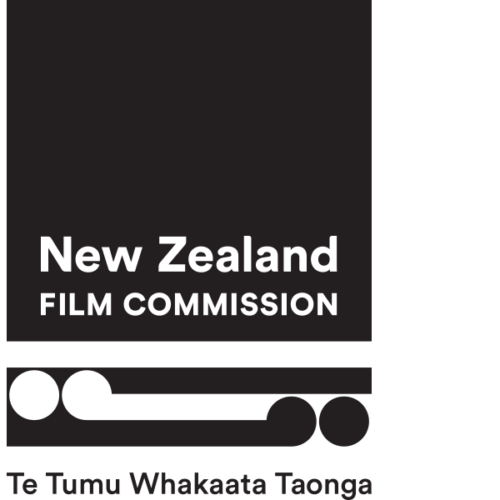
Script to Screen and Te Tumu Whakaata Taonga New Zealand Film Commission would like to thank all the filmmakers who applied for Whiringa Tuatahi – Stage One. There was a wealth of great ideas and some extremely strong talent to select from.
From a total of 112 applications, a panel of external film industry assessors shortlisted 18 projects. These shortlisted teams have been invited to apply for Whiringa Tuarua – Stage Two. At this stage, each team will be supported throughout so they can submit a full application.
The 18 shortlisted teams have a one in three chance of workshopping their project with industry experts and receiving a grant of $15,000 to make their film.
We now have great pleasure in announcing the projects and teams who have been shortlisted for Whiringa Tuarua – Stage Two of Kōpere Hou – Fresh Shorts 2021/22.
Congratulations to:
Script to Screen and Te Tumu Whakaata Taonga New Zealand Film Commission work in partnership to deliver the Kōpere Hou – Fresh Shorts programme.

Image: Stuntman (directed by Pavel Kvatch)
A conversation with the creators of Netflix’s new hit crime thriller Clickbait. While set in the US, Clickbait was developed and made in Australia. It was filmed in and around Melbourne with both US and Australian actors and post-production was completed whilst the city was dealing with many restrictions caused by the pandemic. Co-creators Tony Ayres and Christian White talk with moderator Cass Avery across a wide range of subjects including writing and collaboration, building a team, adapting the series for the US and the audience metrics they received from Netflix.
This Script to Screen Talk was held on 19 October 2021 as an online webinar and made possible thanks to generous support from the New Zealand Film Commission, Foundation North and Images & Sound.
ABOUT THE PANEL
TONY AYRES
Tony Ayres is an award-winning Australian showrunner, writer and director. He is well known for creating some of Australia’s most revered film and television dramas including The Home Song Stories, Nowhere Boys, The Slap, Glitch, Stateless and most recently Clickbait, along with feature movies Cut Snake (2015), The Home Song Stories (2007) and Walking on Water (2002).
CHRISTIAN WHITE
Christian White is an Australian author, screenwriter and producer. He has written award-winning novels The Nowhere Child and The Wife and the Widow. Christian co-created the television series Clickbait, with Tony Ayres. He also co-wrote the feature film Relic, a horror/drama starring Emily Mortimer, Bella Heathcote and Robyn Nevin.
CASS AVERY
Cass Avery is a producer, executive producer and writer, Cass has helmed and scripted more than 50 documentaries and television series commissioned in NZ and Australia. She is currently Head of Development and the Executive Producer at Augusto.
Tues 19 October
5:30pm – 6:30pm NZDT – TALK
This Script to Screen TALK is made possible thanks to generous support from the
New Zealand Film Commission, Foundation North and Images & Sound.
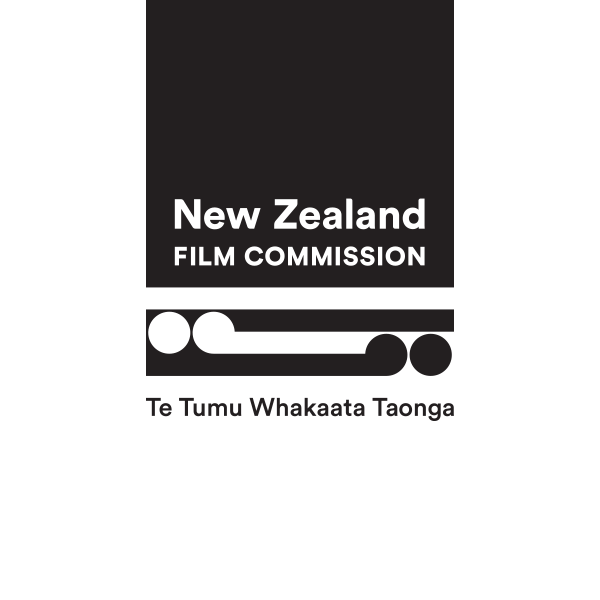
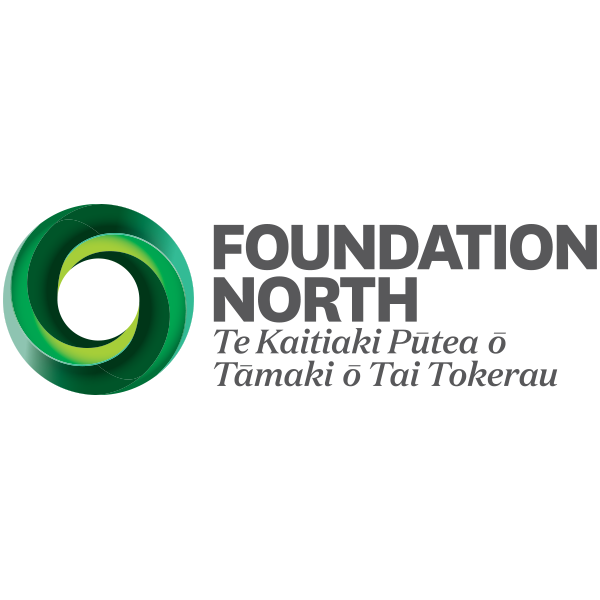

Kōpere Hou – Fresh Shorts is on the search for the next generation of up-and-coming NZ filmmakers.
Kōpere Hou – Fresh Shorts is an NZFC initiative run in partnership with Script to Screen. The programme’s aim is to nurture, challenge, and inspire short filmmaking talent through a development and industry mentoring process. The focus is on the development of both people and stories.
Six teams will be selected to receive up to $15,000 to facilitate the cost of making a short narrative film. The films can be live-action, animation or documentary, with a duration of between four and 25 minutes. The teams behind each of these projects will attend a two-day development workshop in March 2022 and be matched with an experienced industry practitioner to receive six weeks of mentoring to get their project ‘shoot ready’.
Kōpere Hou – Fresh Shorts 2021 applications open Monday 30 August and close at 1pm on 11 October. There are two stages to the application process.
At Whiringa Tuatahi – Stage One you will need to have a writer, director and producer, and to submit the following:
A shortlist of 18 teams will be invited to submit a Whiringa Tuatahi – Stage Two application in mid-November. From the shortlist, six projects will receive $15,000 grants. The teams behind each of these projects will attend a two-day development workshop from 19-20 March 2022 and be matched with an experienced industry practitioner to receive six weeks of mentoring to get their project ‘shoot ready’.
Criteria and requirements for the assessment of both Whiringa Tuatahi – Stage One and Whiringa Tuatahi – Stage Two can be viewed on our website.
Script to Screen and the NZFC will hold an online Q&A about this new application process for Kōpere Hou – Fresh Shorts on 16 September 2021, at 5.30 pm.
If you have any questions please contact Script to Screen: FreshShorts@script-to-screen.co.nz
Kōpere Hou – Fresh Shorts is a New Zealand Film Commission Short Film Fund and Script to Screen manages the reading, assessment, workshop and mentoring aspects of the Fresh Shorts Development Programme.
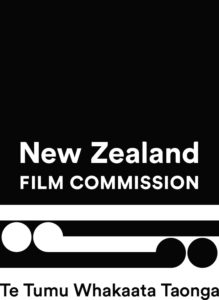
Learn how to make your feature film script stand out in this in-depth scriptwriting workshop. David White will lead you through some of the things he discovered when writing and directing This Town.
Openings! Whether on the page or on screen, the opening scene needs to grab the audience. During the first half of the workshop, David will explore ways to write an impactful opening scene by sharing his experience with the scripted opening of This Town, and the vast changes made to translate the script to the screen.
Write what you know! From locations to characters, using richness from the world around you can help create depth especially when working with the lower budgets of first films. In the second half of this workshop, David will explore how using texture from places and characters you know intimately can help you build a believable world for your film.
Saturday 7th August 2021
9am – 5pm
Drama 2, Te Whaea National Dance & Drama Centre, 11 Hutchison Road, Newton, Wellington.
Who it is for: This workshop is aimed at beginning and emerging feature film writers. Directors and producers wanting to learn more about taking a script into production will also find this workshop valuable and are encouraged to attend. All levels of experience welcome.
Cost: General Admission $23 (incl. GST) via Eventbrite.
What to Bring: Pen and paper. Snacks, tea and coffee will be provided. Please bring your own lunch or there are places to buy your lunch in the vicinity.
COVID Alert Level Note: This workshop will go ahead under Alert Level 1. If Wellington is in Alert Level 2, the workshop date will be reviewed. If Wellington is in Alert Level 3 or 4, the workshop will be postponed.
ABOUT DAVID WHITE
David White has produced and directed a substantial body of documentary and drama work that has enjoyed considerable national and international success, among them Meat, Shihad: Beautiful Machine, I Kill, Little Criminals, The Cleanest Pig and This Town. His work has screened at over 50 film festivals including Sundance, AFI, SXSW, SilverDocs, Tribeca, MIFF, TRUE/FALSE, Clermont Ferrand and been commissioned and screened on BBC, Sky and PRIME TV.
He was the first New Zealander to be shortlisted for a Cinema Eye Honor for his film I Kill (2013). His next two documentaries Little Criminals (2015) and Of Decades in Colour (2017) aired on PRIME TV to strong ratings and critical acclaim. Feature documentary Meat (2017) opened to 4-star reviews and sell-out audiences throughout NZ, was released on multiple NZME platforms and has sold globally.
David’s (writer/director/producer) debut comedy film This Town was developed at the prestigious Venice Biennale College – Cinema, amongst just 12 selected from a worldwide call. It was critically acclaimed and stayed at number one at the NZ theatrical box office for 21days. World sales are being handled by The Film Sales Company.
This workshop is made possible thanks to generous support from New Zealand Film Commission and Creative Communities Wellington.
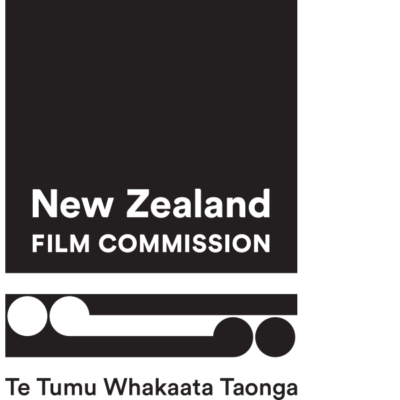
![]()